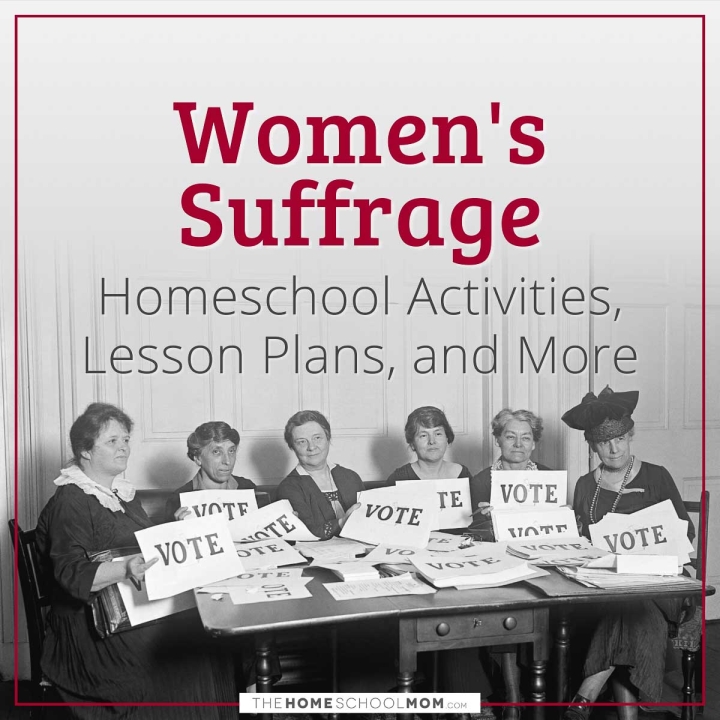A great way to learn how U.S. elections work is to pay attention as you live through a campaign season and an election day. That means your kids have a great learning opportunity right in front of them!

Free Elections Printable
You can use our free printable Elections Unit Study, and kids can learn a lot just from your voter experience. Take them along for the election ride!
Election Topics for Discussion
As you take each of these steps, discuss them with your children and teens and involve them in the process:
- Put the election date on your calendar
- Make a plan to get to the polls, vote by mail, or vote by absentee ballot
- Check to be sure your voter registration information is current
- Learn biographical info about the candidates
- Read candidates' flyers and promotional materials
- Make a list of issues and policies the candidates are for/against
- Watch candidates' videos and advertisements
- Listen to and/or watch candidates' speeches and interviews
- Watch candidates' debates
- Read articles and editorials about the candidates
- Find out if you're in a "battleground state" or district and what that means.
Then go vote—and take your kids with you!
Sometimes poll workers have "Future Voter" stickers for kids. If you have an 18-year-old going to the polls with you, you may find first-time voters are quickly and casually recognized and applauded.
If you have not been a highly engaged voter in the past, knowing your kids are learning from you may encourage you to become a more informed and active voter yourself!
Homeschool Election Activities
In addition to using our printable Elections Unit Study and bringing the kids into your voting experience, we have some additional ideas:
- Help your kids create a voting booth and ballots so they can "play elections"
- Attend or volunteer to help with a voter registration event
- Attend a candidate's meet & greet, rally, speech or debate—local and state candidates may be fairly accessible
- Encourage kids to create political signs or posters for their favorite candidate (real or pretend!)
- Have tweens and teens write letters to the editor in support of a candidate they favor
- Have your kids write and present "campaign speeches" as real or imagined election candidates
If you're in a co-op or teaching a homeschool class:
- Propose that older kids and teens research and write a report or make a slide presentation on an election-related law, policy, or issue, such as:
- voter identification laws
- mail-in ballot laws
- motor voter registration
- Voting Rights Act
- automated voting machines
- giving food or drinks to voters waiting in line (sometimes called "line warming")
- electoral college
- gerrymandering
- fund raising and donations by companies and special interests
- two-party system
- the role or impact of social media on elections
- Set up a mock election for your homeschool group, co-op, or neighborhood kids
- Invite local, regional and state candidates to speak to a gathering of homeschool kids or families
- Teach a lesson and hold discussion on
Don't miss our subscriber-exclusive Elections A to Z Notebooking Unit! Sign up below for access.
Elections Lesson Plans & Resources
- Y—Young (PreK-3rd)
- M—Middle (4th-6th)
- O—Older (7th-12th)
- T—Teacher Resources
Let's Vote! Talking to Children About Voting
A parent's guide to talking about the presidential election from PBS Parents that includes videos, crafts, articles, printables, games, and more.
Presidential Elections Data: 1789 to present
From The American Presidency Project, this collection offers maps showing election outcomes by state starting with the election of 1789.
Project Vote Smart
“Vote Smart's mission is to provide free, factual, unbiased information on candidates and elected officials to ALL Americans.” It’s site has a massive database and tons of tools to make informed decisions about candidates, including biographies, voting records, positions, ratings, speeches, funding sources, a side-by-side comparison tool for different candidates, and much more.
Glossary of Election Terms
An extensive, searchable dictionary of election terms from the U.S. Election Assistance Commission. Available in English, Japanese, Korean, Spanish, Tagalong, and Vietnamese.
State Government Resource
From USA.gov. Visit the government website for each state, the District of Columbia, and U.S. territories and associated states.
The Electoral College
In the U.S., the President and Vice President are elected by the Electoral College – not by the popular vote. Learn all about the Electoral College, how electors are appointed, the history of the Electoral College, and its voting record from the National Archives.
Politics in the Animal Kingdom (Video)
A series of animated videos from YouTuber CGP Grey that explains the First Past the Post (also called Winner Take All) voting system in the US and different types of voting systems from around the world.
Vote 411: Election Information You Need
Vote 411 is a project by The League of Women Voters, “a nonpartisan, grassroots organization working to protect and expand voting rights and ensure everyone is represented in our democracy.” You can “register to vote, find your polling place, look up your ballot, and more” on the website.
Elections: A Primary Source Based Presentation
Elections have been a constant feature of civic life in the United States, and yet they have changed and evolved ever since the first presidential election. This presentation by the Library of Congress explores the past and present of American parties, issues, and the right to vote.
U.S. Election Statistics: A Resource Guide
A guide to online and print resources that contain U.S. election statistics for both federal and state elections. This resource guide compiles a list of online and print resources that contain U.S. election statistics for both federal and state elections. All of the print publications listed in this guide can be consulted on-site at the Library of Congress. In addition, most of the online resources listed are freely available on the Internet. A few of the online databases are available by subscription only, and are so designated.
FiveThirtyEight
FiveThirtyEight is a data journalism site that uses statistical modeling to make election predictions. The site, which takes its name from the number of electors in the United States Electoral College, was originally a personal blog created by analyst Nate Silver. It was later acquired by the New York Times, then ESPN/ABC News. Nate Silver still leads the site. The site is home to many digital projects for elections and politics, including predictions, polling, redistricting maps, and more.
Open to Debate
Open to Debate (formerly Intelligence Squared U.S.) is a nonpartisan, nonprofit organization whose mission is to address the polarization of U.S. politics and “restore critical thinking, facts, reason, and civility to American public discourse.” It produces a debate podcast in which listeners are polled before and after the debate to see how their opinions changed after listening to the discourse.
The Brookings Institution - Elections
An independent research and policy institute. The website contains briefing papers, analyses, and other resources related to many current political issues.
Electoral Maps
Visual aids for mapping electoral votes.
PolitiFact
“PolitiFact is a nonpartisan fact-checking website to sort out the truth in American politics. PolitiFact was created by the Tampa Bay Times, a Florida newspaper, in 2007. In 2018, PolitiFact was acquired by the Poynter Institute, a nonprofit school for journalists.”
Fact Check.org
FactCheck.org is a project of the Annenberg Public Policy Center located at the University of Pennsylvania. The site claims to be nonpartisan and nonprofit. The goal of the website is to monitor factual accuracy in U.S. politics.
Federal Election Commission
Provides information about campaign finances.
Open Secrets
Another great site that exposes who is contributing how much to whom; a link titled who paid for this election will give children a better understanding of why politicians make promises to certain groups; search the database by politician or by donor.
Register to Vote - The National Voter Registration Act
Students can familiarize themselves with the National Mail Voter Registration Form that can be used to register to vote, update registration information due to a change of name or address, or register with a political party.
Directory of US Political Parties
Politics1 has an extensive directory of of US political parties – from the prominent to the obscure. Included are links to the party websites and a brief history for each.
The Living Room Candidate
Presidential Campaign Commercials 1952 - present.
Kids Voting Arizona
Kids Voting Arizona is a nonprofit, nonpartisan, grassroots-driven voter education program. The site has a large collection of voting and civics resources for kids, including lessons, activities, games, and more.
C-SPAN in the Classroom
Includes teacher resources and links in topics like Campaign Events, Campaign Topics, and assorted likes to election related government sites.
Congress and the Voting Rights Act of 1965
This collection of primary sources from the Library of Congress that includes letters, statements, and photos related to the Voting Rights Act of 1965.
Voting Rights Act (1965)
The Voting Rights Act of 1965 banned discriminatory voting laws. The full text can be found on the National Archives.
Rightfully Hers: American Women and the Vote
"In celebration of the 100th anniversary of the 19th Amendment, Rightfully Hers: American Women and the Vote highlights the relentless struggle of diverse activists throughout U.S. history to secure voting rights for all American women." Virtual exhibition from the National Archives Museum
Websites for political parties:
- Democratic National Committee
- Republican National Committee
- The Green Party of the United States
- Libertarian Party
- The Socialist Party








